Going out of print, Newsweek ends an era
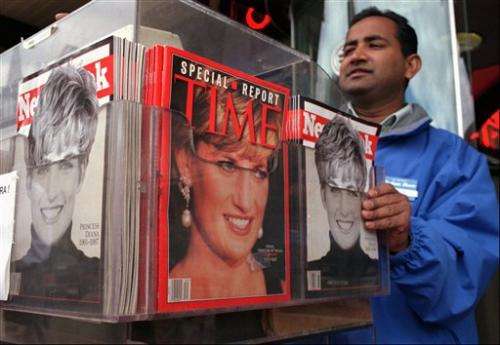
There was a time when the newsweeklies set the agenda for the nation's conversation—when Time and Newsweek would digest the events of the week and Americans would wait by their mailboxes to see what was on the covers.
Those days have passed, and come the end of the year, the print edition of Newsweek will pass, too. Cause of death: The march of time.
"The tempo of the news and the Web have completely overtaken the news magazines," said Stephen G. Smith, editor of the Washington Examiner and the holder of an unprecedented newsweekly triple crown—nation editor at Time, editor of U.S. News and World Report, and executive editor of Newsweek from 1986 to 1991.
Where once readers were content to sit back and wait for tempered accounts of domestic and foreign events, they now can find much of what they need almost instantaneously, on their smartphones and tablet computers. Where once advertisers had limited places to spend their dollars to reach national audiences, they now have seemingly unlimited alternatives.
So on Thursday, when Newsweek's current owners announced they intended to halt print publication and expand the magazine's Web presence, there was little surprise. But there was a good deal of nostalgia for what Smith called "the shared conversation that the nation used to have," when the networks, the newsweeklies and a few national newspapers reigned.
Before Newsweek, there was Time—the brainchild of Henry Luce and Briton Hadden. The first issue of the first newsweekly came out in 1923, and the formula, from the first, was to wrap up the week's news and tie it with a bow, telling it with a singular voice.
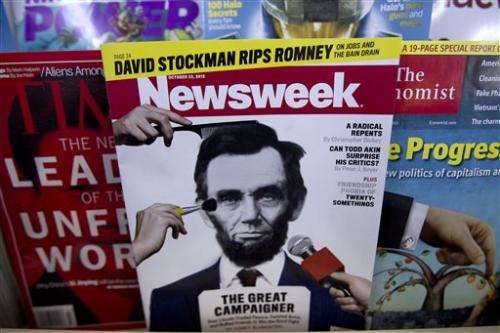
Newsweek—or as it was originally called, News-week—came along in 1933. The founding editor was Thomas Martyn. The first foreign editor of Time, he was British-born and had a single leg, having lost the other in World War I. His magazine sold for 10 cents and was advertised as "an indispensable complement to newspaper reading, because it explains, expounds, clarifies."
The magazine struggled for four years, until it merged with another magazine, Today, lost the hyphen, and emerged under the ownership of Averill Harriman and Vincent Astor, two of the country's wealthiest men.
The modern era at Newsweek began in 1961, when it was purchased by the Washington Post Co. Benjamin Bradlee, who was Newsweek's Washington bureau chief at the time and later executive editor of the Post, helped negotiate the sale.
Edward Kosner, who worked at Newsweek from 1963 to 1979, ending as executive editor, recalled the time as a kind of golden age of the newsweeklies.
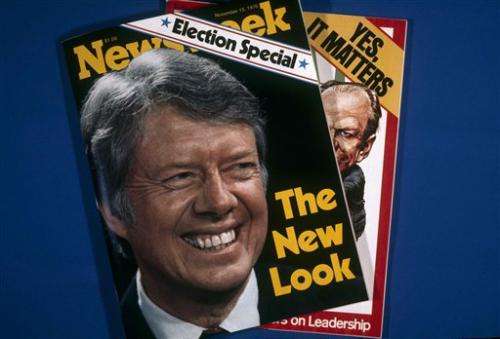
"It's a lost world," he said. "It's like talking about the 19th century.
"Everybody cared about what was on the cover Monday morning. People took the magazines very, very seriously. They were important. They were influential."
Richard M. Smith joined Newsweek for a two-week writing tryout in 1970 and stayed until 2007, rising to executive editor before retiring as president and chief executive officer. Newsweek was always the scrappy competitor to Time, which grew to a corporate behemoth with numerous magazines and media properties and had the larger circulation; Smith said he and his colleagues preferred to think of themselves as "the noble guerrilla band, fighting the 'panzer division on Sixth Avenue.' We took pride in our speed and flexibility and occasional irreverence."
He recalled with pride Newsweek's coverage of civil rights in the 1960s, the end of the Vietnam War and economic issues in the 1970s, the AIDS epidemic in the 1980s.
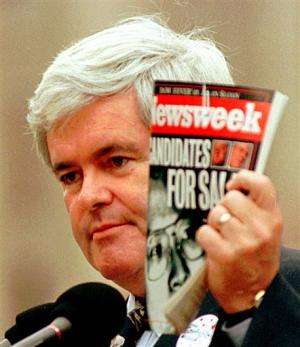
Perhaps because of Time's Luceian origins—he and his wife, Clare Boothe Luce, were major Republican figures—Newsweek was often perceived as a more liberal counterweight. Its readers loved the weekly Periscope section, with its editorial cartoons and hot-off-the-presses news blurbs. Where Time only later started providing bylines for its stories, Newsweek offered star columnists like George Will, Eleanor Clift and Anna Quindlen.
Life in the newsweeklies, Stephen Smith recalls, was nothing like today's frenetic media sprint. At the start of each week, reporters would come into work for a couple of days and think about story ideas and how to pitch them. The correspondents were far flung; the editing and fact-checking were meticulous.
"That world doesn't exist anymore," he said.
The magazines have tried to adjust. They do not rehash the week's events as they once did. They offer more opinion, more analysis.
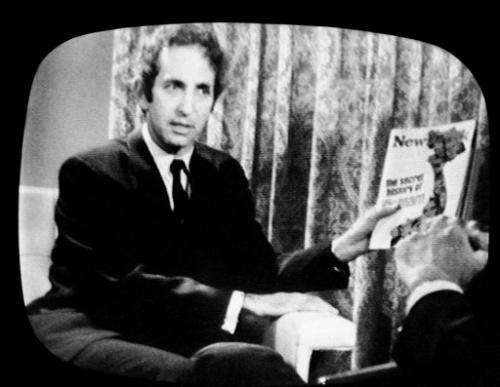
Newsweek often struggled over the years, and the Post sold it to stereo equipment magnate Sidney Harman in 2010 for $1. He died the next year, but not before the magazine was joined to The Daily Beast Web operation.
The cost of maintaining a network of correspondents has risen dramatically, along with the costs of printing and postage. Meanwhile, Newsweek's circulation dropped from 3.14 million in 2000 to 1.5 million in 2012. Time, too, has dropped, but not as precipitously, from 4.2 million in 1997 to 3.38 million now.
Other newsweeklies have done better: The Economist, with its upscale readership, went from less than 1 million in 2000 to 1.5 million in 2012, and The Week also has made gains.
Regardless, it is clear that the golden age of newsweeklies will not return.
Kosner recalled a time when there might be a presidential debate on a Tuesday night, and his readers would eagerly await the arrival of the next issue of Newsweek—five days later—to find out the story behind the story, to hear what the newsmagazine had to say about what had happened. Now, he says, they merely go to CNN, or log on to Slate.
"Time marches on," he said.
But for how long?
Copyright 2012 The Associated Press. All rights reserved. This material may not be published, broadcast, rewritten or redistributed.




















